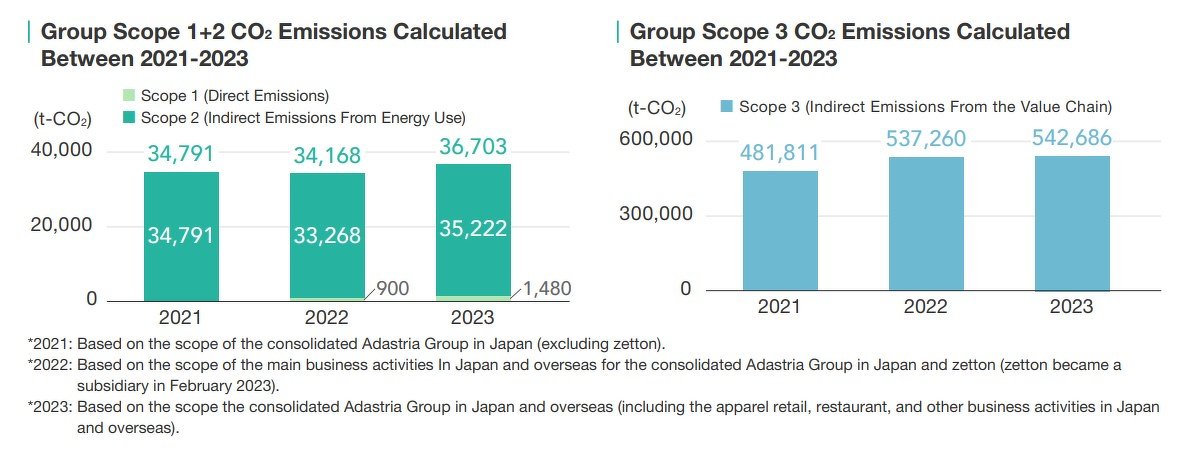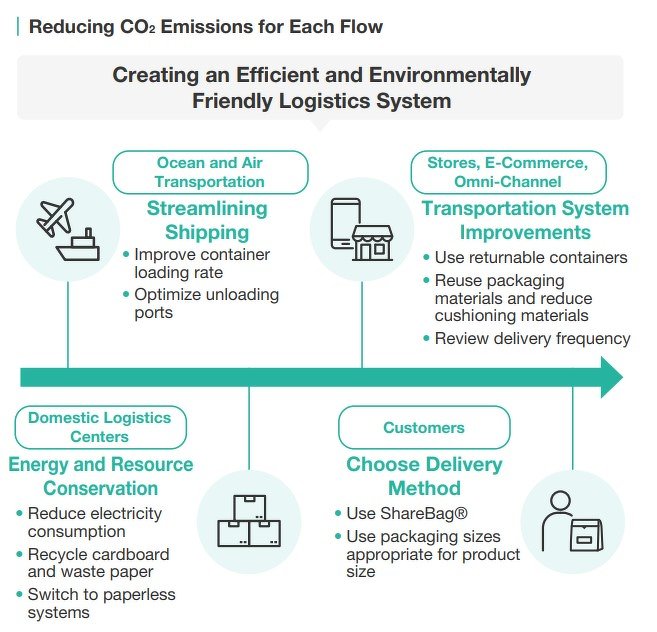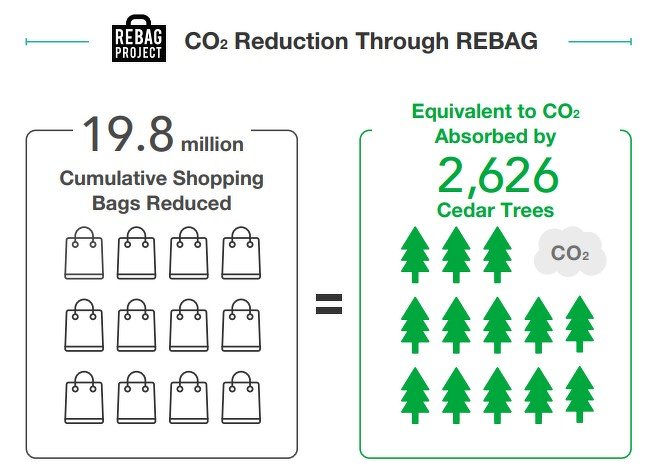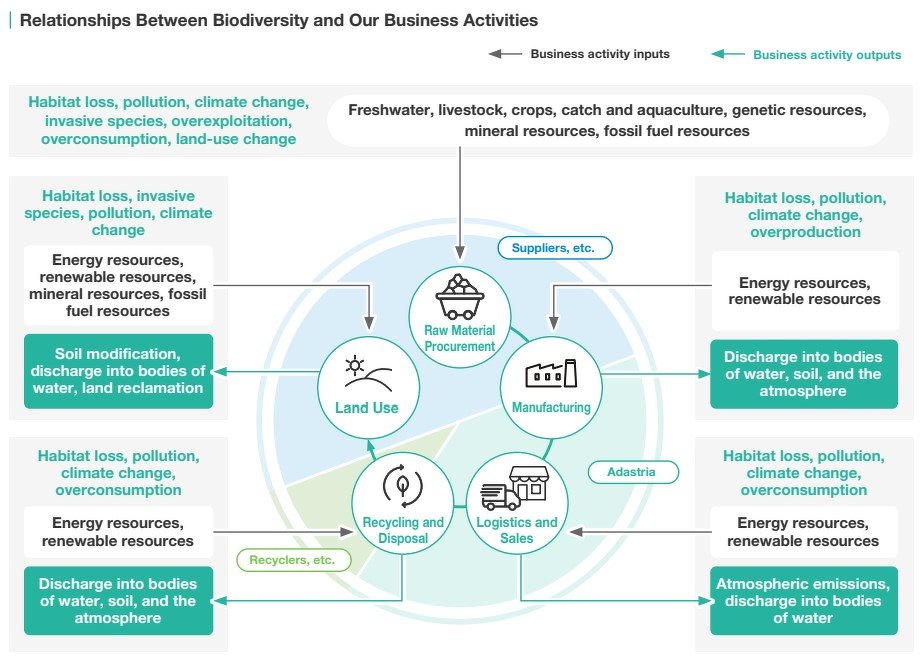Extreme weather and natural disasters stemming from climate change occur frequently in recent years in Japan and overseas. In response, Adastria strives to enhance management resilience by formulating countermeasures from a medium- to long-term perspective to cope with recent situations. We are committed to balancing business growth for the Company and external stakeholders with environmental considerations. To this end, we identify potential risks and opportunities in our business areas and disclose appropriate information to our stakeholders.
Achieving carbon neutrality by 2050
Climate change is not only a global issue, but also one of the most important risks to our business, threatens soaring raw material prices and supply chain disruptions caused by large-scale natural disasters.
How we think about climate change
While we previously focused on understanding CO2 emissions primarily in our domestic business, we expanded the scope of our calculations in response to the growing scale of our overseas business. In fiscal 2023, we identified CO2 emissions in the activities of overseas offices and stores, expanding our scope of calculation to include our direct and indirect CO2 emissions, both in Japan and overseas. Going forward, we will cooperate with suppliers and other external parties in Scope 3 (CO2 emissions outside of our own businesses) to improve the accuracy of emissions data and calculate the carbon footprint (CFP) of each brand and item. In this way, we strive to encourage the development of GHG reduction plans and measures throughout the supply chain.
CO2 Emissions by Scope (t-CO2)
Financial impact related to climate change
We are working to disclose information in accordance with the framework of the Task Force on Climate-related Financial Disclosures (TCFD).
Reducing Environmental Impact across the Value Chain
Reducing Adverse Environmental Impacts by Building an Efficient Logistics System
Adastria strives to understand the CO2 emissions in our logistic activities. To this end, we identify the adverse environmental impacts on our business processes and implement appropriate reduction measures. Our distribution centers conserve resources by eliminating the use of delivery slips and receipts previously included with product shipments and using cardboard boxes that better match product sizes. We also reduce CO2 emissions by aiming to improve transportation efficiency through implementing comprehensive improvements. These efforts include improving delivery frequency and loading rates, as well as creating a joint delivery system.
New Shopping Style Created With Customers
The REBAG PROJECT has reduced 19.8 million cumulative shopping bags by February 2024 over its 10-year history, creating a new shopping style that normalizes the use of reusable shopping bags. This cumulative total is equivalent to the annual amount of CO2 absorbed by 2,626 cedar trees (approx. 23 tons-CO2)*1. O0u is a D2C brand of ADOORLINK, a subsidiary of Adastria. O0u offers services that provide customers with sustainable shipping choices. One such service is the Share Bag®, a returnable delivery bag for use in mailboxes provided by Comvey, Inc. More than 30% of O0u users chose the ShareBag® delivery option within the first month of its adoption. Adastria will continue to work with our customers to create shopping styles that offer the fun of fashion as a sustainable choice.
*1 Assuming the annual CO2 absorption per cedar tree is approx. 8.8 kg
Biodiversity and Natural Capital
Our main business, apparel retailing, relies heavily on natural capital. To this end, we are committed to business that considers not only the environment but also biodiversity in all aspects of our business activities. If we had no concern for the global environment or biodiversity, our corporate activities would be unviable and customers would stop choosing our products and services. We will take full advantage of our accumulated knowledge and new solution technologies to organize nature-related dependencies and impacts in each process of our business activities, from raw material procurement to disposal and recycling.
Initiatives to prevent plastics from leaking into the ocean
In recent years, textile waste from clothing and other items has become one of the causes of marine pollution. As an apparel company, we recognize the importance of addressing this issue. One way we are working to resolve this through our businesses is the FIBER HOLD BAG, a laundry net that can reduce textile waste spillage by 80%*. FIBER HOLD BAG is made of a fabric with a finer mesh (0.05 mm) than normal nets, allowing it to trap minuscule sizes of textile waste and keep it from spilling out. This is a unique product to Adastria that not only helps prevent clothing deterioration from friction but also is more environmentally friendly during laundry.
*Spillage mitigation effects versus instances where no laundry net is used
Back to Materialities and Targets






